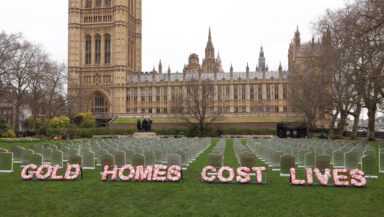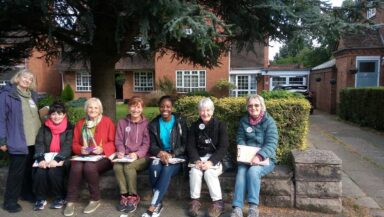If you want to help prevent a climate catastrophe – and I hope you do – then our personal carbon footprints are not the best place to start. Start with the things that change the system. Vote for politicians who support climate action. Engage with representatives. Write to companies that you spend money with and press them for more ambition. Badger your workplace, your school, your place of worship, your gym, your bank, your supermarket, your landlord.
We all have a limited number of hours in the day. Direct your attention to the things that will make the biggest possible difference.
Habits, not actions
Still got time and energy left? Okay, let’s talk about ourselves. Our personal actions matter too. It’s how we live out our values. Our choices can model change to our community and family. How we spend our money sends signals to companies. Taking responsibility for our carbon footprints shows solidarity with those suffering the effects of climate change now and in the future. And we want to know that we’re doing what we can, and making a meaningful contribution. Lifestyle change and system change is not an either/or – so what should we do?
First of all, let’s put aside the word ‘actions’ and talk about habits instead. Actions suggest one-time things. Habits have huge cumulative impact.
Choosing a vegan option on a menu is an action. Eating a plant-based diet is a habit. Based on UK averages, if you eat vegan for two years, you’ll save the lives of a pig, a sheep, 31 fish and 41 birds – and all the food, water and energy used to raise, butcher and process them.
Taking the bike to work once is an action. Make it a habit, and a two-mile commute will save over a thousand miles of car travel in a year. You’d be saving oil, money, air pollution, carbon emissions and traffic all in one go.
Think about the cumulative effect, and you’ll see that little changes are bigger than they appear. Use that as motivation to get over the initial inconvenience.
Putting in place some green habits is a great way to build confidence for more ambitious actions, which is where the big carbon reductions come in. Giving up car travel, flying less. Refurbishing the house. Investing in an electric vehicle, sustainable heating, or solar panels. These are big-ticket actions that most of us have to plan for and work towards. But if we’re serious about reducing carbon emissions, that’s where the big cuts lie.
Think about what you can’t do
That brings me to a final problem with the question in the title: it only asks about the things we can do. If we stop at the stuff we can do right now, we may be ruling out the biggest opportunities to make a difference. Progress often lies in what we can’t do – yet. It’s when we push at those limits that the most significant breakthroughs happen.



